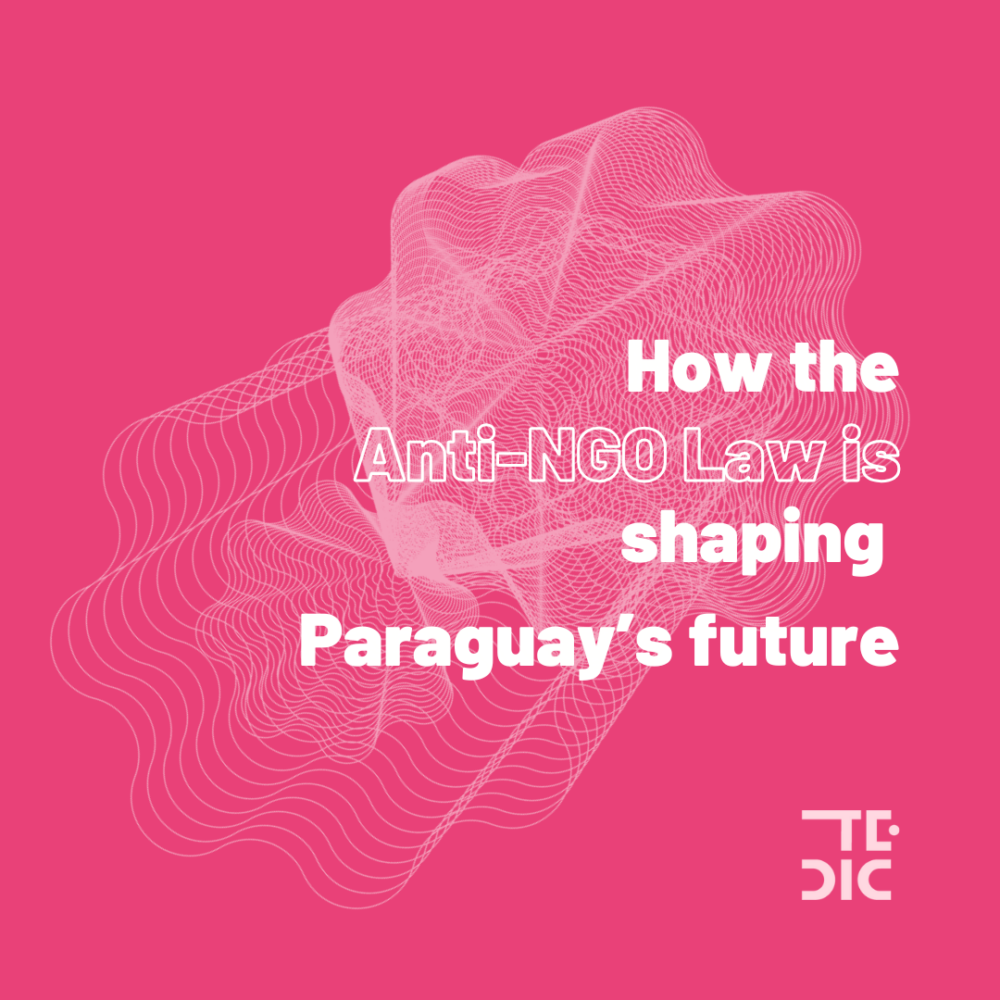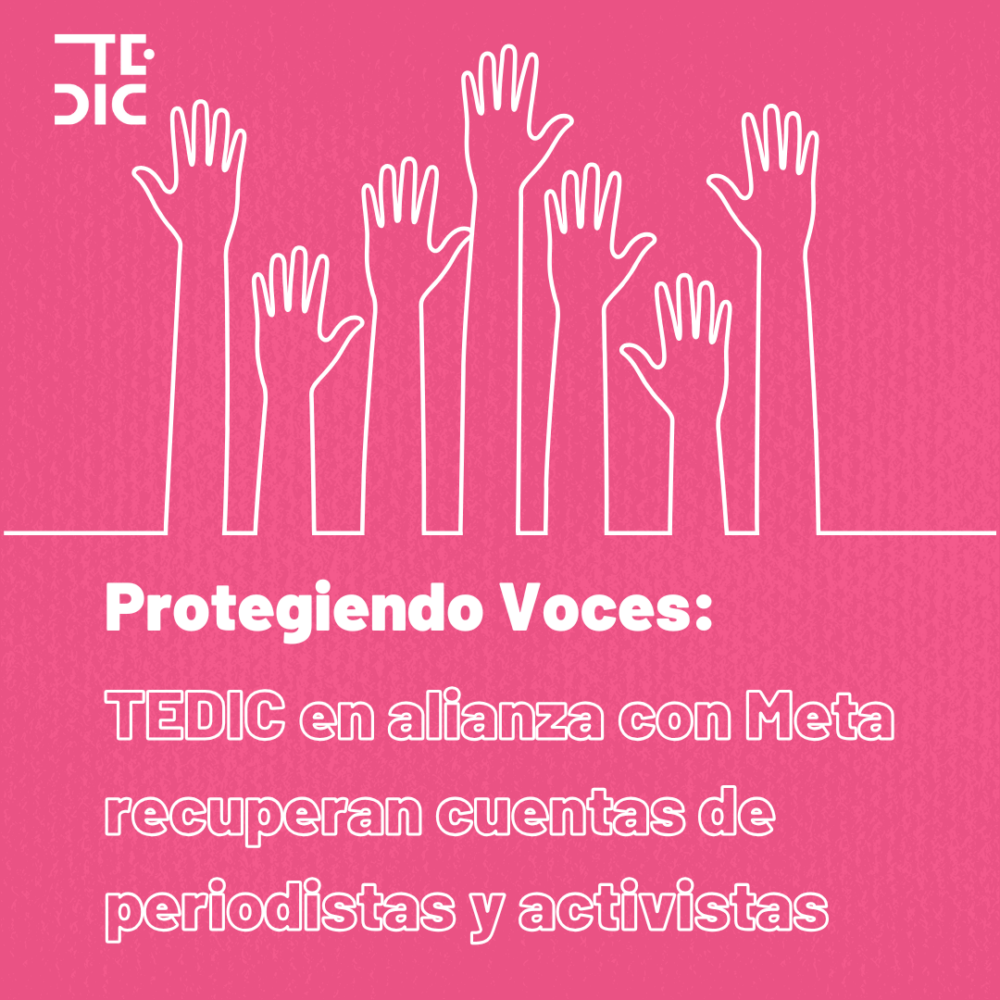
Law No. 7363/24 on transparency of non-profit organizations has generated deep concern among civil society and various international actors due to its implications on the fundamental rights of organizations and individuals in the country. This law introduces a legal framework with broad and ambiguous language that could lead to excessive control over our civil society organizations (CSOs), which, in practice, threatens their independence, freedom to operate, and our democracy.
The law enacted this November 2024 has been perceived by many as an attempt at excessive control over civil society organizations, similar to what has happened in countries like Nicaragua, Venezuela and Rusia.
The implications of the law for NGOs
In Paraguay, all civil society organizations, also known as NGOs, are required to register in a national registry and maintain detailed records of the funds they receive or manage, whether from national public or private sources, international private entities, or foreign government funds. In addition, they must submit periodic reports to the Ministry of Economy and Finance (MEF). Unregistered organizations would be excluded from receiving public funds or entering agreements with public entities and could face severe penalties, including disqualifications for their staff.
It should be noted that there are more than 13 types of mandatory registrations for NGOs and this one adds further significant penalties and excessive requirements. Although the law states that the autonomy of NGOs will be respected and that control, registration, and accountability obligations will not interfere with their operations, the requirements imposed are excessive.This administrative burden could be applied arbitrarily, limiting organizations’ ability to operate freely and infringing on their fundamental rights, including freedom of association, expression, and participation.
The legislative process and the lack of public consultation
The Paraguayan Senate approved the bill on July 8, without conducting an adequate public consultation process to involve NGOs and the general public in the preliminary discussions. This prompted an immediate reaction from organizations, which highlighted that the bill contradicted international human rights standards, particularly the fundamental rights of association and expression. CSOs also warned that the approved text was vague and imprecise, which could lead to restrictive interpretations and arbitrariness in its implementation.
Despite minor amendments made by the Chamber of Deputies on October 1 and its subsequent approval in the Senate on October 9, concerns persist. The law was enacted by President Santiago Peña on November 15, 2024, and remains ambiguous, imposing excessive registration and reporting requirements that could jeopardize NGOs’ ability to operate independently. Although the law has not yet been regulated, it poses a fundamental threat to the work of organizations defending human rights and democracy. After the law was approved by the Executive, the Bicameral Commission of Investigation (CBI) on anti-money laundering and related crimes, better known as the “Garrote” Commission, extended the mandate to prosecute NGOs critical of the government to 60 days.
International reactions and concerns about the impact
Numerous international actors have expressed alarm at the proposed legislation. Among them:
- Gina Romero, Special Rapporteur on freedom of peaceful assembly and of association, warned that the law’s high penalties violate international standards, while a spokesperson for the UN Human Rights Office stated that “we regret the recent and expedited approval by the Paraguayan Senate of a draft bill imposing substantial restrictions on the financing of non-profit organisations, as well as additional registration requirements and disproportionate compliance penalties”.
- The Special Rapporteur on Freedom of Expression of the Inter-American Commission on Human Rights, Pedro Vaca, cautioned that the law could restrict the operations of non-profit organizations in Paraguay and urged the executive branch to consider inter-American human rights standards when deciding on its approval or veto.
- CIVICUS Monitor stated that the provisions of the bill conflict with international human rights obligations, particularly regarding the freedoms of association and expression, as well as the right to public participation. The broad and vague language of the law creates significant ambiguity, allowing for restrictive interpretations that could compromise these fundamental freedoms.
- Amnesty International highlighted that the bill imposes extensive registration and compliance obligations on all civil society organizations, which could compromise their independence, privacy, and security. The vague penalties for non-compliance could undermine legality and threaten the rights of association and expression, endangering the rights it seeks to regulate.
- The New York City Bar Association warned that the law would threaten the fundamental rights of organizations and individuals in Paraguay, including those working to defend human rights.
- The Steering Committee of the Open Government Partnership (OGP) noted with concern that several countries are advancing regulations that could restrict the work of civil society organizations (CSOs), affecting their freedom of association, autonomy, and ability to receive funding. These initiatives could create excessive bureaucracy, raise administrative costs, and hinder access to funds, jeopardizing their operations and their ability to serve the community. In addition, CSOs would face a real threat of closure. This not only affects the organizations but also weakens the state’s ability to respond effectively and transparently to the needs of its citizens.
The hostile environment toward TEDIC and other CSOs
As noted in our previous article in July, our organization TEDIC has faced an increasingly hostile environment. It has been the target of defamatory attacks; during a congressional session, a senator made false accusations against the organization, suggesting that its funding was linked to campaigning efforts. These attacks were not limited to the legislative sphere but also extended to the media, where misinformation about TEDIC’s funding was published in an attempt to discredit our work.
Additionally, the Minister of the Superior Electoral Court expressed concern about the alleged lack of transparency of NGOs and accused TEDIC, indicating it should be subjected to new controls due to a supposed agreement with the TSJE, a claim that is false.
The current situation underscores the urgent need to protect civic space in Paraguay and ensure that organizations can continue to work without fear of reprisals or arbitrary restrictions. The proposed law, in its current form, poses a threat to the rights of NGOs and to freedom of expression in the country. It is imperative to respect the right of organizations to operate freely and independently, without imposing excessive controls that could be used to silence civil society. The president of Paraguay, upon enacting the law, requested the initiation of a participatory regulatory process with the collaboration of the MEF and the National Country Strategy Team (ENEP). However, as noted in various national and international analyses by experts, this law is unconstitutional.
From Paraguay, the international community is urged to remain vigilant, safeguarding and supporting NGOs in their efforts to defend fundamental rights and preserve a free and open civic space.


 [Research] Technology-facilitated gender-based violence against women politicians in Paraguay
[Research] Technology-facilitated gender-based violence against women politicians in Paraguay  Defending those who defend us
Defending those who defend us  Regarding the trends in the Antipyrawebs Observatory in 2023
Regarding the trends in the Antipyrawebs Observatory in 2023